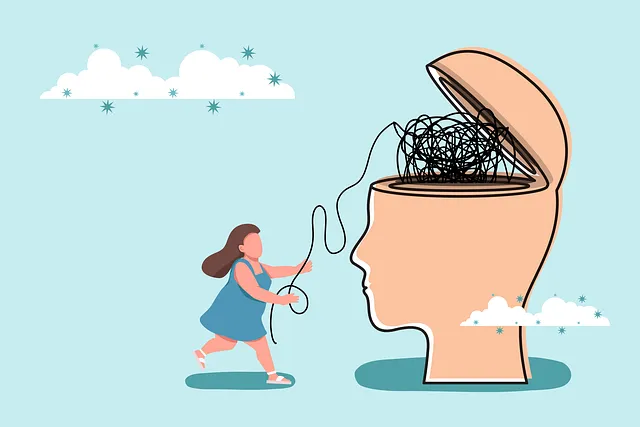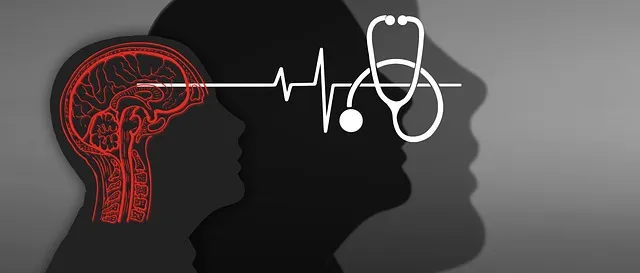Kaiser Permanente Longmont provides comprehensive mental health services that include evidence-based emotion regulation techniques such as cognitive-behavioral therapy and mindfulness training. Their tailored approach, focusing on individual risk assessment, empowers clients to manage their emotions effectively, fostering resilience and improved well-being. These services, including Compassion Cultivation Practices and Self-Awareness Exercises, address stress management, anxiety reduction, and complex mental health challenges, enhancing emotional balance and quality of life for the community.
Emotion regulation techniques are essential tools for navigating life’s challenges. This article explores the intricate concept of emotion regulation, highlighting its profound impact on mental well-being. We delve into the significance of teaching these skills, especially in today’s fast-paced world. With a focus on Kaiser Permanente’s Mental Health Services in Longmont, we provide an overview of available resources. Discover popular techniques and their real-world applications, and learn how emotion regulation training can transform lives. Explore why such programs are gaining traction and how they empower individuals to manage emotions effectively.
- Understanding Emotion Regulation: Unraveling the Concept
- The Importance of Teaching Emotion Regulation Techniques
- Kaiser Permanente's Mental Health Services in Longmont: An Overview
- Popular Emotion Regulation Techniques and Their Applications
- Implementing and Benefitting from Emotion Regulation Training
Understanding Emotion Regulation: Unraveling the Concept

Emotion regulation techniques are crucial tools for maintaining mental well-being and overall quality of life. Understanding this concept involves recognizing that emotions are a natural part of human experience, but learning to manage them effectively can prevent them from overwhelming our thoughts and actions. At Kaiser Permanente Longmont, mental health services play a pivotal role in teaching individuals these skills, helping them navigate the complex landscape of their emotional responses.
Through various methods, such as cognitive-behavioral therapy and mindfulness practices, Depression Prevention strategies become accessible to those seeking support. Risk Assessment for Mental Health Professionals is an integral part of this process, ensuring that techniques are tailored to individual needs. Mood Management is not just about suppressing emotions but learning to observe, accept, and redirect them constructively. By mastering these skills, folks can foster resilience and enhance their ability to cope with life’s challenges, ultimately improving their overall mental health and well-being.
The Importance of Teaching Emotion Regulation Techniques

Emotion regulation techniques are essential tools for individuals to navigate their mental health journey, and teaching these skills is increasingly recognized as a vital component of comprehensive care. Organizations like Kaiser Permanente understand the profound impact that empowering people with emotional intelligence can have on their overall well-being. By offering programs focused on emotion regulation, such as those available at their Longmont mental health services location, Kaiser Permanente takes a proactive approach to community outreach and self-care practices.
These techniques are particularly crucial in managing stress, which is a prevalent issue in today’s fast-paced society. Teaching individuals how to recognize and control their emotions can lead to improved mental resilience and enhanced quality of life. Through various methods, including mindfulness training, cognitive behavioral therapy, and emotional awareness exercises, people can develop coping strategies that cater to their unique needs, fostering a sense of balance and self-control in all aspects of their lives.
Kaiser Permanente's Mental Health Services in Longmont: An Overview

Kaiser Permanente’s Mental Health Services in Longmont offer a comprehensive range of support for individuals seeking to improve their mental well-being. This healthcare provider recognizes the importance of accessible and quality mental health care, providing a diverse array of services tailored to meet various needs. Their team comprises skilled professionals who employ evidence-based practices, such as Compassion Cultivation Practices, Self-Awareness Exercises, and Self-Care Practices, to help patients navigate and manage their emotions effectively.
The facility’s approach focuses on holistic healing, ensuring that each patient receives personalized attention. Through counseling sessions, therapy groups, and various workshops, Kaiser Permanente empowers individuals to develop valuable emotion regulation techniques. These services cater to a wide range of concerns, from stress management and anxiety reduction to more specialized support for complex mental health challenges. By integrating these practices into their offerings, Kaiser Permanente in Longmont strives to foster resilience, promote emotional balance, and enhance the overall well-being of its community members.
Popular Emotion Regulation Techniques and Their Applications

At Kaiser Permanente Longmont, we recognize the importance of teaching effective emotion regulation techniques as part of our comprehensive mental health services. Some popular methods include Self-Awareness Exercises, which help individuals gain insights into their emotional triggers and patterns. By fostering self-awareness, these exercises empower people to make conscious choices in managing their emotions. Another powerful technique is promoting Emotional Intelligence—the ability to recognize, understand, and manage one’s own emotions as well as those of others. This skill set not only enhances relationships but also serves as a robust depression prevention tool.
Through various therapeutic approaches, Kaiser Permanente Longmont offers guidance on navigating life’s challenges with resilience. These techniques cater to diverse needs, ensuring individuals develop healthy coping strategies tailored to their unique experiences. Whether it’s mindfulness practices or cognitive-behavioral therapy, our mental health professionals are dedicated to helping clients unlock the potential for emotional well-being and a higher quality of life.
Implementing and Benefitting from Emotion Regulation Training

Emotion regulation training is a powerful tool that can significantly benefit healthcare professionals, especially those within organizations like Kaiser Permanente who offer mental health services in Longmont. By implementing these techniques, providers can enhance their ability to manage stress and emotional challenges, leading to improved well-being and job satisfaction. This type of training often includes strategies for burnout prevention, which is a growing concern among healthcare providers due to the demanding nature of their work.
Incorporating emotion regulation into professional development programs, such as community outreach initiatives or mental illness stigma reduction efforts, can foster a healthier work environment. These skills enable caregivers to better navigate stressful situations, respond sensitively to patients’ needs, and maintain emotional balance. As a result, healthcare providers may experience reduced stress levels, improved patient outcomes, and enhanced job performance, ultimately contributing to their long-term success in the industry.
Emotion regulation techniques are powerful tools for enhancing mental well-being, and their teaching is becoming increasingly recognized as a vital component of comprehensive mental health care. As discussed, Kaiser Permanente’s services in Longmont play a significant role in promoting these skills, offering accessible resources to help individuals navigate their emotional landscapes effectively. By understanding the concept, recognizing its importance, and exploring popular techniques, we can foster healthier minds and improve overall quality of life. Therefore, embracing emotion regulation training is a step towards a more resilient and balanced future.






